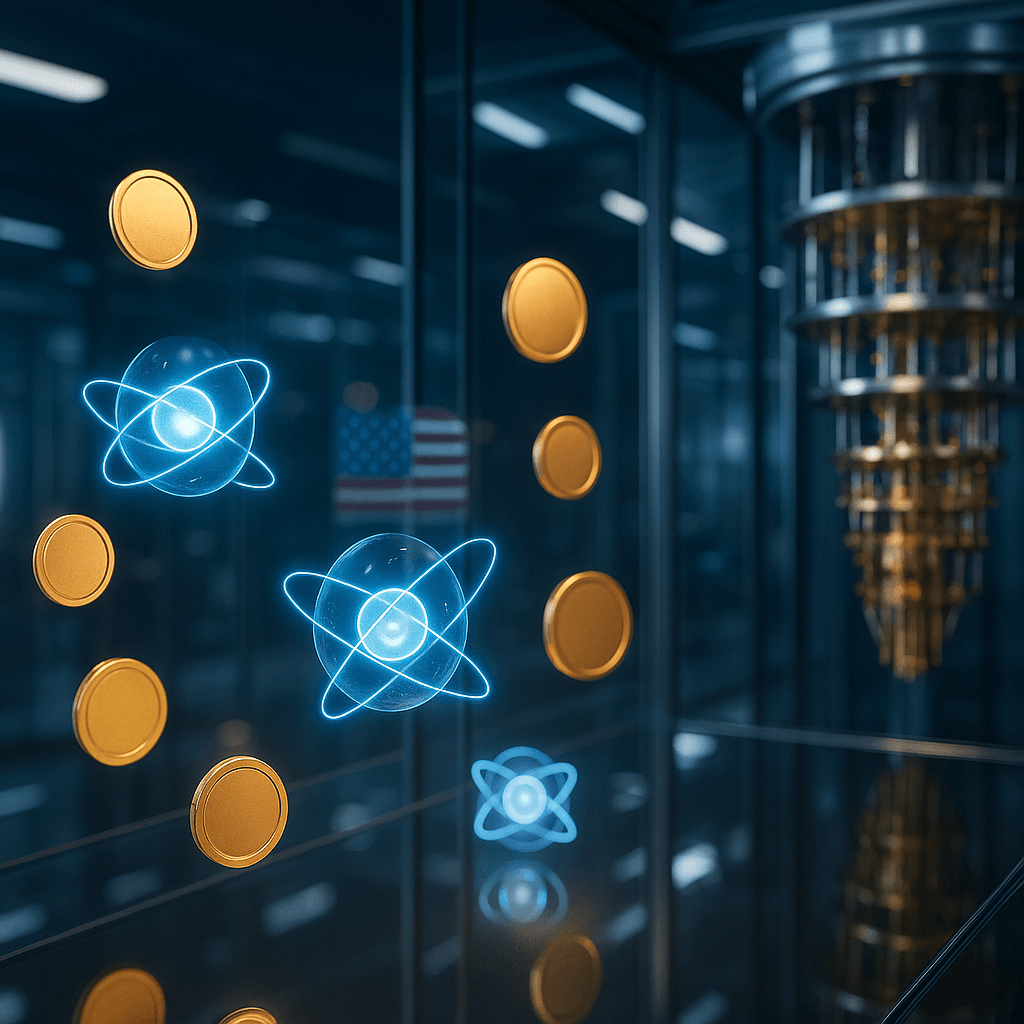The Trump administration is negotiating equity stakes in quantum computing companies including IonQ, Rigetti Computing, and D-Wave Quantum in exchange for federal funding, according to a Wall Street Journal report that sent quantum stocks surging up to 11% in early trading Thursday. The move extends Washington's unprecedented push into strategic tech sectors following similar deals with Intel and rare earth companies.
Washington just made its boldest move yet into America's quantum future. The Trump administration is deep in negotiations with several quantum computing companies about taking equity stakes through the Commerce Department in exchange for federal funding, according to sources familiar with the talks who spoke to the Wall Street Journal.
The market's reaction was instant and dramatic. IonQ and D-Wave Quantum shares each jumped 9% in early trading Thursday, while Rigetti Computing added 7%. Quantum Computing Inc surged 11%, even as the company weighs whether to join the program alongside Atom Computing.
This isn't Washington dipping its toes in the water - it's a full dive into America's most strategically critical technologies. Each quantum deal comes with minimum funding of $10 million, sources tell the Journal, but the real story is how this fits into Trump's broader vision of government as investor-in-chief for national security tech.
The quantum push follows two major precedents this year that redefined how America funds its technological edge. In July, the Defense Department invested $400 million in rare earths company MP Materials for about a 15% stake after China restricted critical mineral exports. A month later, the government took roughly 10% of Intel - America's only company capable of manufacturing advanced AI processors on domestic soil.
"We do have to be very careful not to overreach," Treasury Secretary Scott Bessent told CNBC in an exclusive interview on Oct. 15. But the pattern is clear: if you're building tech that China wants and America needs, Washington wants in.
The quantum bet makes perfect strategic sense. These aren't just faster computers - they're machines that use quantum mechanics to solve problems completely beyond today's supercomputers. The technology could revolutionize drug discovery, financial modeling, and materials science while potentially breaking the encryption that secures everything from bank transfers to military communications.


